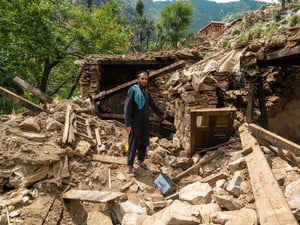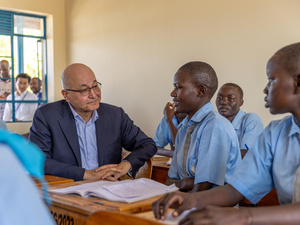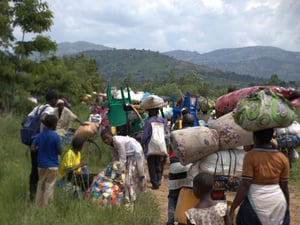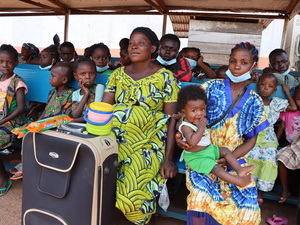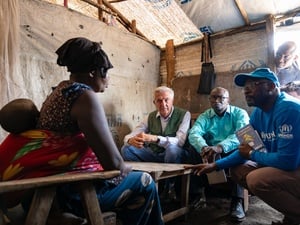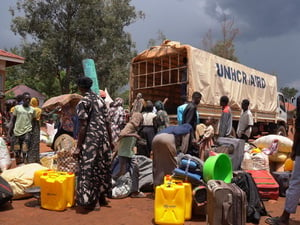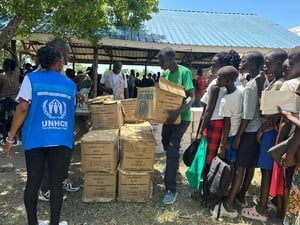Hounded from home, raped Congolese woman seeks refuge in Burundi
Hounded from home, raped Congolese woman seeks refuge in Burundi

Mama Monique in the Cishemere Transit Centre, Burundi. She fled to Burundi after her husband was killed and she was raped in neighbouring Democratic Republic of the Congo.
BUJUMBURA, Burundi, August 27 (UNHCR) - Four months ago, Mama Monique* was dragged out of her home in eastern Democratic Republic of the Congo and raped by four armed men, who had just murdered her husband.
The crime was not carried out in some rural backwater, but in Goma, a city of several hundred thousand people and capital of North Kivu province. Yet nobody came to help her or offer condolences, instead neighbours shunned the 49-year-old Congolese businesswoman and acted as though she was to blame for the rape.
At first, to escape the scorn of those living around her, the mourning and dejected Mama Monique moved to another area of the lakeside city with her family, including six children and two grandchildren.
Even then she could not find peace, tracked down by the people who killed her husband because of an argument linked to his work as head of the land registry office. These people now wanted title to her house.
She decided to move again, eventually ending up in neighbouring Burundi via Bukavu and Uvira in South Kivu province. "Believe me I didn't know where I was going; I just wanted to be as far away as possible from Goma and the people who knew us," she told UNHCR staff in the Cishemere Transit Centre for asylum-seekers.
But Mama Monique's ordeal is not an isolated case, despite the launch of high-level global campaigns by UNHCR Special Envoy Angelina Jolie and others to prevent sexual violence in conflict areas. These will take time to bring results; in the meantime, rape remains widespread and survivors of sexual violence continue to be stigmatized.
Mama Monique's life has changed drastically. She used to run a successful business selling jewellery to other women in Goma, and the family were self-sufficient and happy in a volatile area of the DRC. She finds it painful to think about this happier time.
Her children have also lost out. "I was very upset to leave," said her 18-year-old daughter, Mika,* who misses her school and friends - it was very hard for her to leave without saying goodbye. She was about to start her final year at secondary school and hoped to go on to university and eventually become a teacher.
On the arrival in Burundi, Mama Monique and her family contacted the National Office for the Protection of Refugees and Asylum-Seekers in Bujumbura and were taken to the Cishemere centre, where they were registered as asylum-seekers. They will eventually be moved to the Kavumu Refugee Camp in eastern Burundi.
UNHCR and its partners help newly arrived refugees with food, water, shelter and medical assistance. Mama Monique has been receiving medical care and counselling for trauma. Her children are hopeful that even in exile they can resume their studies and prepare for the future. For their mother, it will be more difficult to adjust to a new life after losing so much. .
Burundi currently hosts around 50,000 refugees, mostly from Democratic Republic of the Congo (47,800). Some 9,200 asylum-seekers from the DRC have been granted refugees status in Burundi since the start of 2013.
* Names changed for protection reasons.
By Alix Nijimbere in Bujumbura, Burundi

